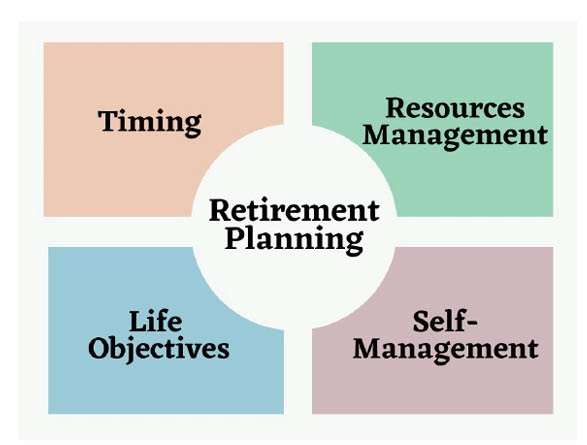“The best time to start planning for retirement is your first day at work. The next best time is today! – Musbahu El Yakub
My first job after graduation was as a research/graduate assistant at my alma mater, one of Nigeria’s premier universities. I was under twenty-one, unmarried and earning a monthly take-home pay of N740.00. It was about twice the salary of our colleagues in state civil services and good enough to save out of. Following my Master’s degree in Nuclear Physics, I resigned and went for the MBA program that was then quite reputable and popular. After completing the program at the top of my class, I got a job with a bank. Again, my salary was good. I reached the position of manager and head of branch at a time when being a bank branch manager came with authority and privileges. I was doing great professionally, but I resigned voluntarily without having another job. I ‘rested’ for a few months before getting another job as a senior corporate executive in one of the largest conglomerates in the country. We worked hard and completed some of the largest business projects in Nigeria. My position attracted a good salary and benefits. But I resigned without another job. Again. I have now been an entrepreneur, business consultant and human capacity development trainer, including retirement planning for over a decade; making and losing money as comes with the territory.
What is my point? I think I can talk about leaving jobs with or without another, investments going right and investments going wrong, and retirement planning!
Beyond that though, my story is similar to that of many members of my generation, with more or less resignations from paid jobs, more or less right and wrong investments! Our parents’ generation had less Western education but proportionately more job openings (as we had just become an independent nation when they were finishing school). On the other hand, the generation of our younger siblings and children have, at least, as much Western education, but correspondingly fewer job openings due to economic realities that are within our hands to change for the better. For those reasons, the latter generation is proportionately more engaged in self-employment and entrepreneurship.
In the course of my human capacity development programs, I realized that retirement from active service is a major cause of concern and even apprehension for many people in our country. So, as I mentioned elsewhere, many of our people, at various points in their careers, in both our public and private sectors, have no deliberately thought-out retirement plans that they will be or are working on.
On the other hand, thankfully, there are also many retirees that are living admirably well and contributing to their families, communities, and the country in ways that they didn’t or probably couldn’t when they were fully employed. This demonstrates that the concerns and apprehensions mentioned earlier can be addressed for a deserving and desirable healthy, comfortable, and meaningful retirement. But it needs thought, planning and discipline.
The Retirement Planner column, starting today and every Monday hence, will aim to bring out how we should rightly think about retirement and what we should wisely be doing at various stages in our careers and professions in planning for it. It will cover all aspects of retirement planning from the emotional comportment required, to finance and investment, income, expense, and cash flow management, etc. It will also take on ‘non-financial’ factors such as physical and mental health issues in retirement as well changes in relationship dynamics and management, personal effectiveness, personal security, estate, and legacy management, etc.
We will provide relevant information, go-to sources, tools, guiding principles and practices as well as experience sharing. From time to time, I will have visiting experts in some fields for your benefit and the interest of those you may advise and positively influence.
And by the way, the Retirement Planner will not seek to be a one-size-fits-all solution. For instance, the realities of female professionals and businesswomen, ‘Early planners’ in their twenties and thirties just starting their careers, ‘Early Catchers’ in their forties and ‘Consolidators’ in their fifties and early sixties that are about retiring or are going into second careers will all be contextualised.
I sincerely believe that the Retirement Planner will be great in helping us to understand the realities of retirement, putting them in perspective and in showing and encouraging us on what we need to do to have a blissful retirement. It will be for everyone regardless of career and where they are on the career/retirement planning timeline. Next week, we will take up The Transition Imperative.

 Join Daily Trust WhatsApp Community For Quick Access To News and Happenings Around You.
Join Daily Trust WhatsApp Community For Quick Access To News and Happenings Around You.